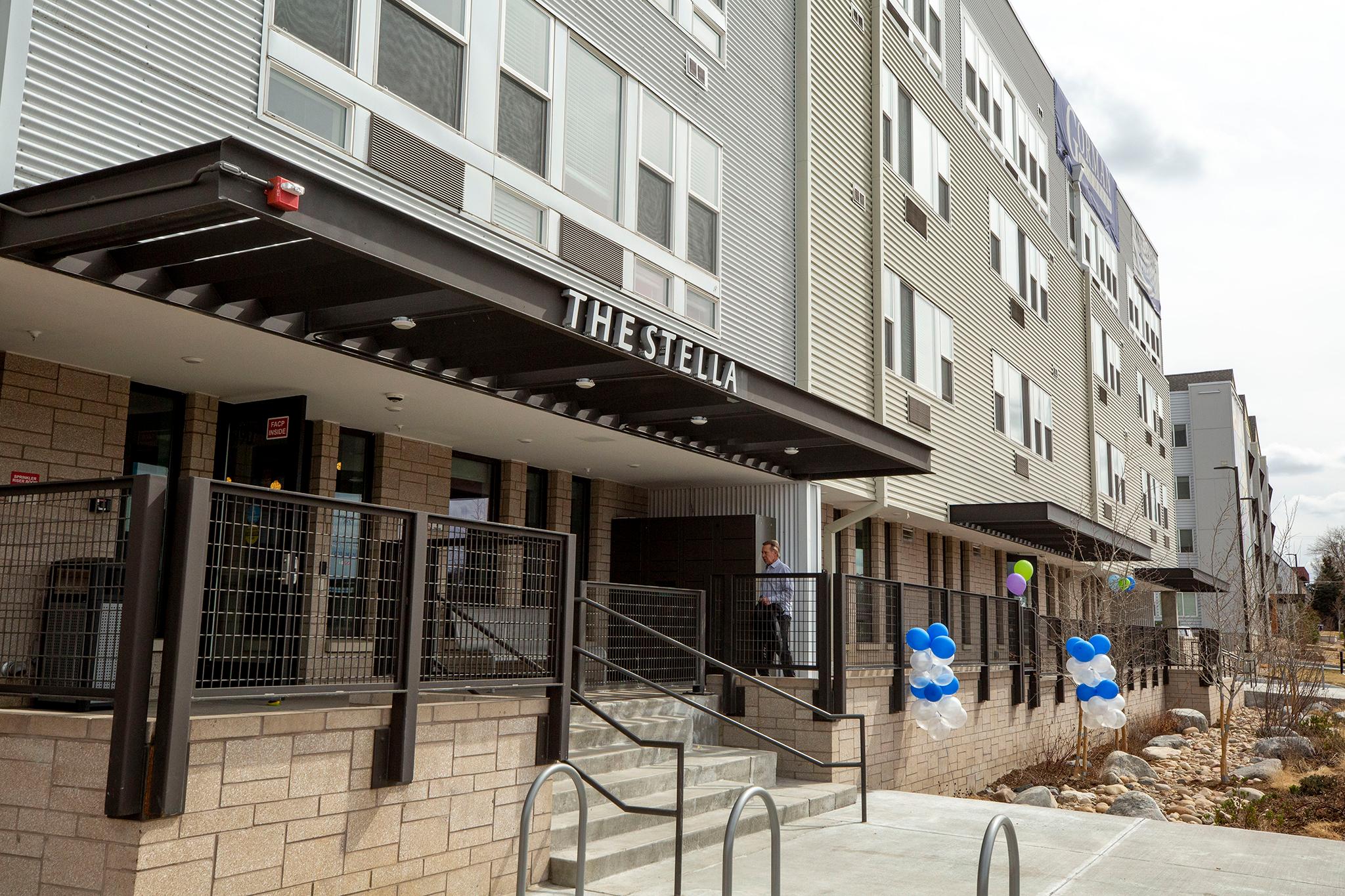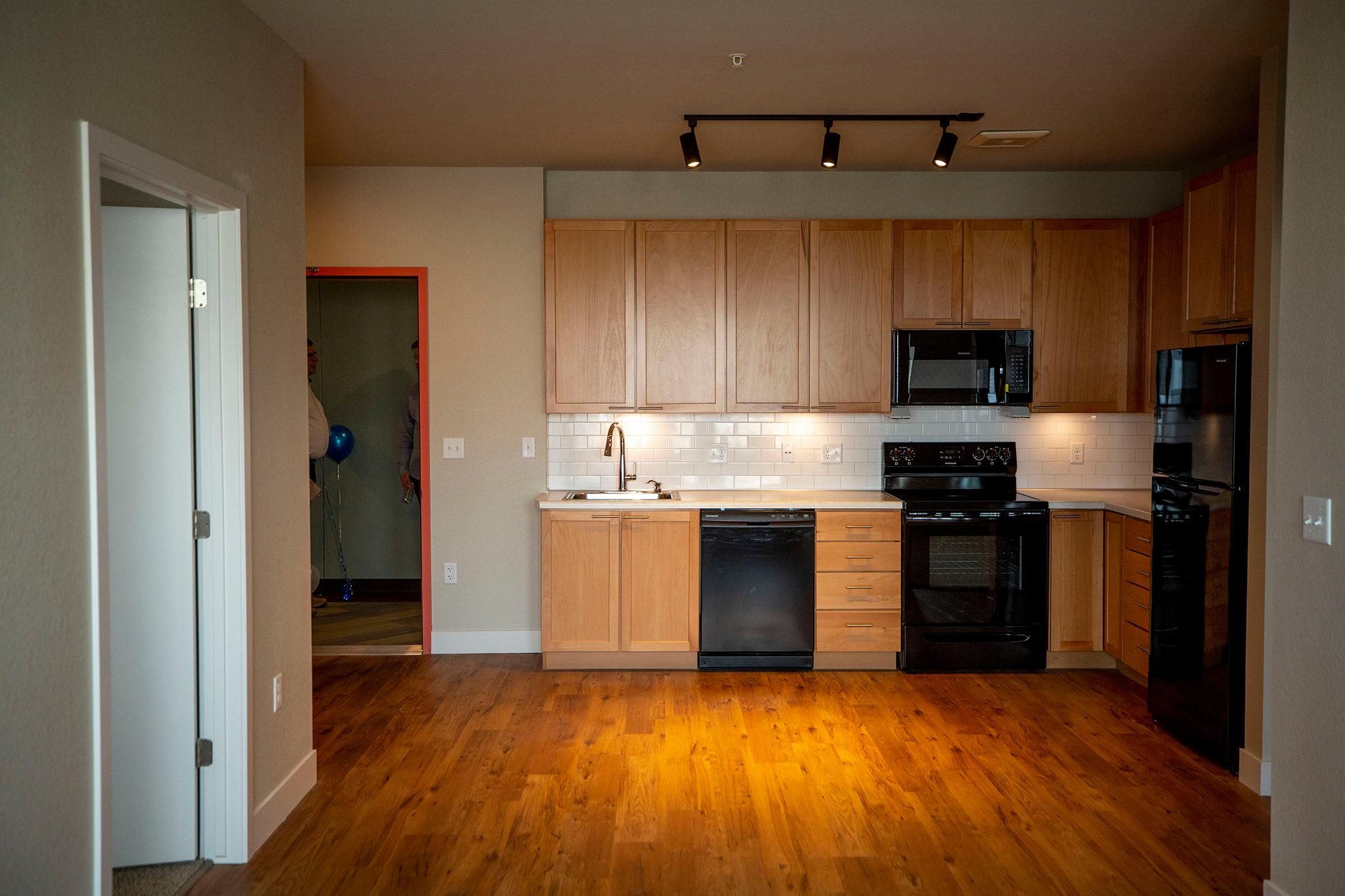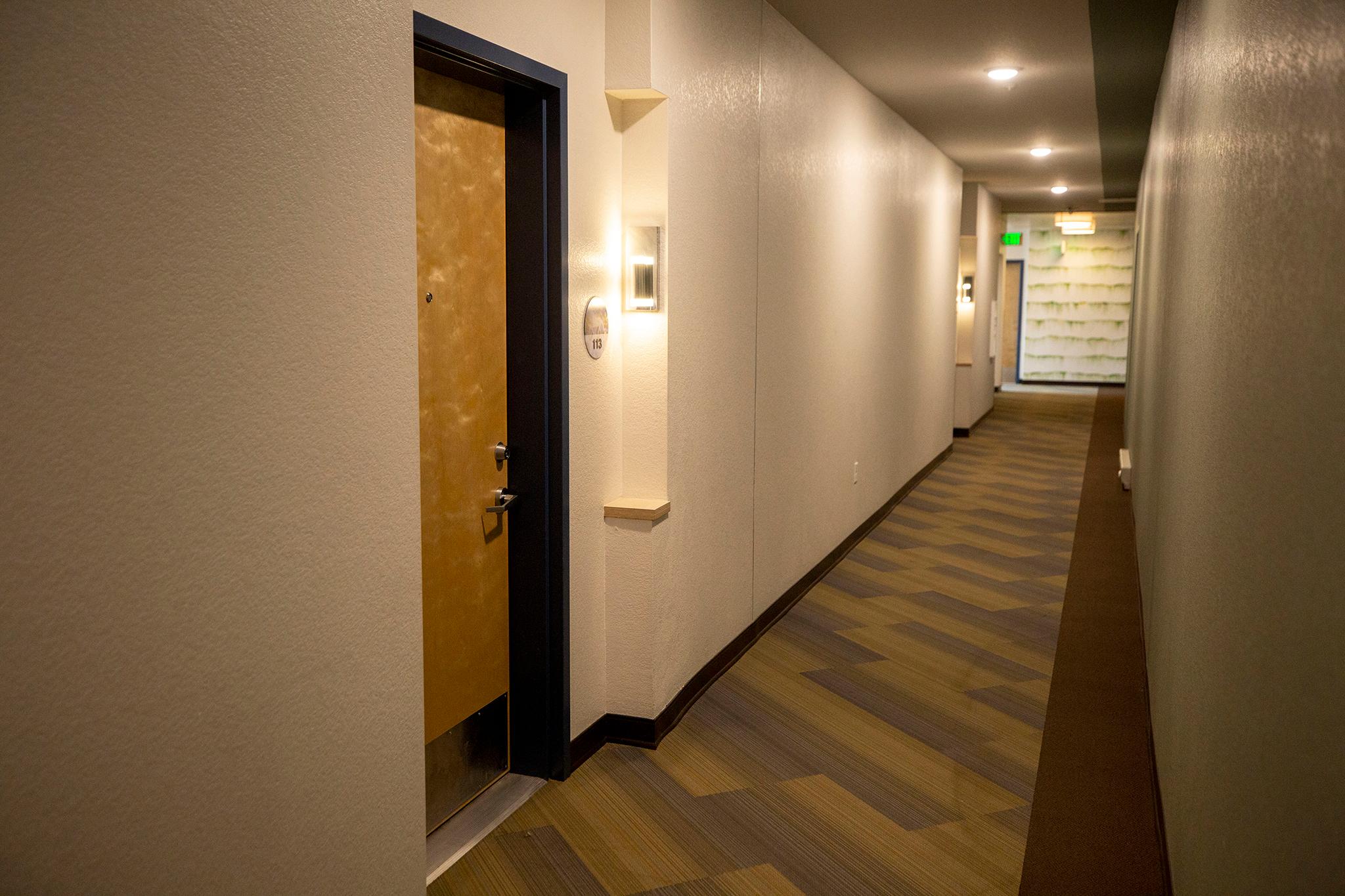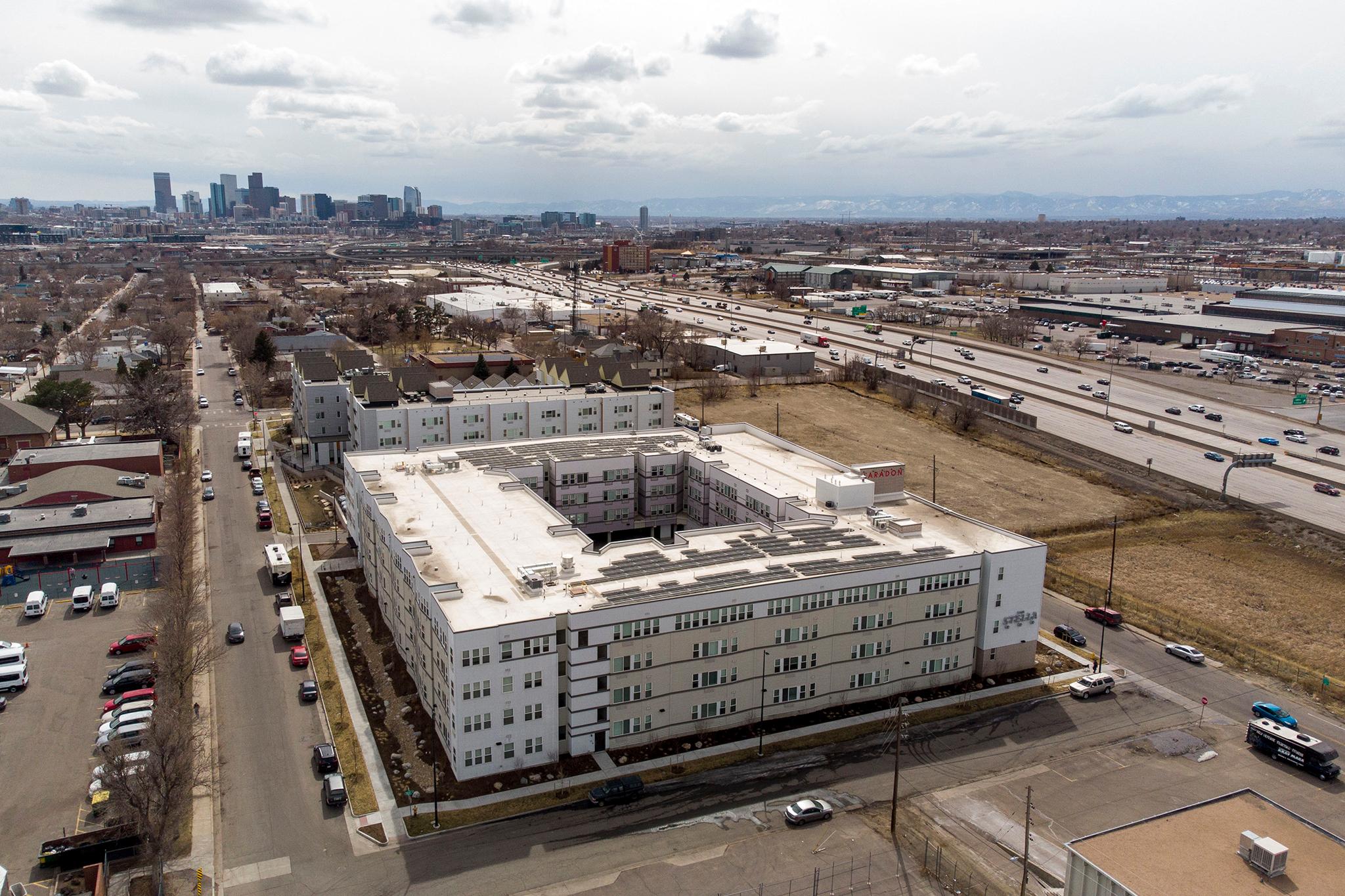The city is more than 50,000 units of affordable housing behind what's needed for people making below 60% of the area median income, Denver Housing Authority executive director David Nisivoccia told Denverite in January. (Area median income was $94,320 for a family of three in 2021.)
That's an intimidating number of units to build, amount of land to secure, and of funding to raise, especially with the current strategy of building more affordable housing: a patchwork of public and private partnerships with government groups like the Department of Housing Stability, quasi-governmental organizations like the Denver Housing Authority, nonprofits, banks and other lenders. All that takes time, resources and deep connections.
"If you can get the funding from different avenues, you can cover your costs," Kimball Crangle, the local president for the income-restricted housing developer Gorman and Company said. "But if you can't cover the costs, you're dead in the water."

So when a project like The Stella, Gorman's 131-unit mixed-use income-restricted housing development, comes to Globeville, it's a big deal -- even though 131 new units is a pittance of what's needed.
The project celebrated its opening on Wednesday, though people have been living there since late August. The building includes first-floor space for the nonprofit that donated the land. That group, Laradon, which has offered services to people with developmental issues since 1950, donated the land for the project.
Above Laradon's space, there are one- to four-bedroom units. Multi-bedroom units are a rarity in new builds and their addition to the project helps ensure that at least some families can stay in the city.

"We're seeing a need for family-sized housing units so badly," Crangle said.
The Stella will serve people making between 30% and 80% of the area median income. Of the 131 units, 16 will be dedicated to residents with intellectual and developmental disabilities who are at risk of homelessness; 97 will be for people earning up to 60% of the area median income; and 18 will go to people earning up to 80% of the AMI.
Gorman found funding for the project from a variety of sources: low-income housing tax credits from the Colorado Housing Finance Authority and the National Equity Fund, funding from the city and the Colorado Division of Housing, construction loans, permanent loans and support from the Denver Housing Authority to help pay for the units for people transitioning out of homelessness.
"The Stella is a testament to the power of partnerships, and what's possible when a longtime nonprofit services provider joins with an affordable developer to create affordability for present and future generations in Denver," said collaborator and Department of Housing Stability executive director Britta Fisher in a statement.
These sorts of private-public collaborations are the primary way any income-restricted housing is built. Putting together funding for income-restricted projects has been Gorman's focus, and unlike market-rate developers, addressing housing affordability is the company's mission.
"Our core ethos as a company is really providing this type of housing," Crangle said. "We don't go outside of our lane here. You know, there are other developers that focus on market-rate and other developers that focus on other things. What we really get jazzed about is trying to figure out how we can add really good quality, long-lasting, sustainable, affordable housing communities in neighborhoods of choice."
There are only so many sources for that funding, and the main ones regionally are working at the edge of their capacity.
Colorado Housing Finance Authority tax credits has been one of the major mechanisms for funding affordable housing, but the group's money is limited and competitive for developers to secure. Because CHFA is committed to funding projects across the state and spreading its resources, its ability to fund a massive amount of new Denver housing is limited.
Denver Housing Authority, the city's largest affordable housing developer, has the capacity to fund around 300 units a year, Nisivoccia said, so the group can't keep up with demand.

The lack of affordable housing has been worsening in metro Denver -- and Colorado as a whole -- for years.
"This demand has been building since our last recession," Crangle said. "And there are never going to be enough resources to solve this in the ways that we've been trying to solve it. We really need to get creative. It's got to be some funding. It's also got to be some policy initiatives. We really need to work around the edges to add as much supply as we possibly can, because the problem is going to compound."

So what are those solutions? For Crangle, it all starts at the neighborhood level.
Rezoning communities to allow for accessory dwelling units is a starting point. She thinks neighborhoods could push for bigger income-restricted development projects.
Ultimately, she hopes Denver generates more funding for affordable housing through new builds -- the sort of ideas being floated in the city's new Expanding Housing Affordability process that aims to change how much money developers are required to put into income-restricted housing. It's a trend she sees echoing throughout the metro area.
"Many jurisdictions have now really come around to saying this is something we need to have," Crangle said. "So the political will is there. Some resources are there. I think more jurisdictions are going to get more creative about creating additional resources through likely taxing mechanisms. You kind of piece together the financing to afford the development."
But it's not just large-scale developers that can make an impact in creating more housing.
"Our neighborhoods in Denver have the power to create opportunities for affordable housing along the income spectrum," she said. "They don't always have to be huge developments. They can fit within the neighborhood character."
Much of these ideas would require a shift in how people view their neighborhoods and who deserves a home in them.
"That takes the political will of saying the folks that live in affordable housing are important enough to our community that we will include them in our developments going forward," she said.











